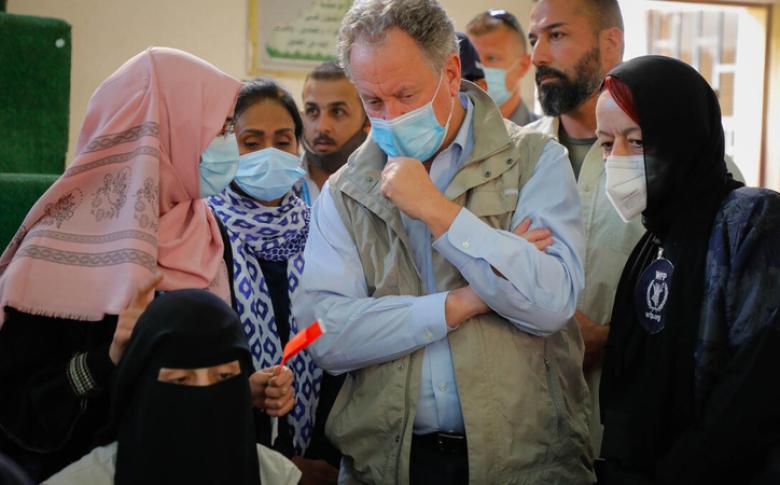Catching up with the Executive Director of the World Food Programme in Yemen

In early March, David Beasley, the World Food Programme (WFP) Executive Director (ED), conducted an important mission to Yemen to - in his own words - draw the world’s attention to the worsening plight of its people, who have been pushed to the brink of famine by years of conflict and violence.
ETC: How did ETC connectivity services and the team in general support your visit to UN Common Accommodation Facility (UNCAF)?
ED: The ETC team supported this critically important mission by ensuring stable internet connectivity wherever I was in Sana’a. This included the usual places such as in my accommodation or at the WFP office. It also included more unconventional locations, such as in the car while moving between meetings and field sites.
On a high-profile mission it’s no exaggeration to say that every minute counts, and thanks to the ETC team I was able to use every moment as productively as possible. Not only was the internet connection seamless, but the whole team were extremely professional, friendly and service-oriented, and ready to help whenever any questions came up.
ETC: What was your overarching feeling on seeing the WFP operation (including ETC) continue amid the world’s worst humanitarian crisis?
ED: It was devastating to see the scale of suffering that now exists in Yemen. We are heading straight toward the biggest famine in modern history, and the truth is, it’s hell on earth in many places in Yemen right now. I visited the Al Sabeen children’s hospital in Sana’a. Almost all the children I met there were sick, just skin and bones, and dying with entirely preventable or treatable illnesses. It’s truly heart-rending.
Having seen one of the very worst of what humanity can do, witnessing WFP’s operation in Yemen also shows humanity at its very best and I am so proud of our entire team. Many of you are far from home and separated from your loved ones, working in incredibly tough conditions. But day in, day out, you all pull together and do your absolute best to get life-saving assistance to the many families who need it. I am in awe of the inspirational work you all do, and the hardships you are prepared to endure to make this world a better place. Thank you!
ETC: With the amount of travelling you do, how important is connectivity and technology, particularly in remote and volatile contexts, and especially now during the pandemic?
ED: Staying connected is incredibly important for me – whether I’m in Rome, the United States, visiting donor capitals or deep in the field. At any given time multiple different issues require my attention. Even while I am in Yemen, I may need to deal with an urgent matter in Syria, DRC or South Sudan; have a conversation with a leader on a sensitive access issue; or join a meeting to finalize an agreement for urgently needed funds. Without connectivity and technology, none of this would be possible.
Reliable connectivity doesn’t just enable me to work while I’m on the road, it’s fundamental to so much of what we do in WFP and the whole humanitarian community. I’ve seen this first-hand in places like Mozambique in the immediate aftermath of Cyclone Idai, where the ETC really stepped up to the challenge and was central to the entire humanitarian response.
Internet connectivity has really come into its own over the past year because of the COVID-19 pandemic. Beyond supporting our operations, technology has been the lifeline that has kept so many of us connected to our families and loved ones when we could not be with them physically. It has allowed us to stay positive and keep our spirits up during an unprecedented global challenge.